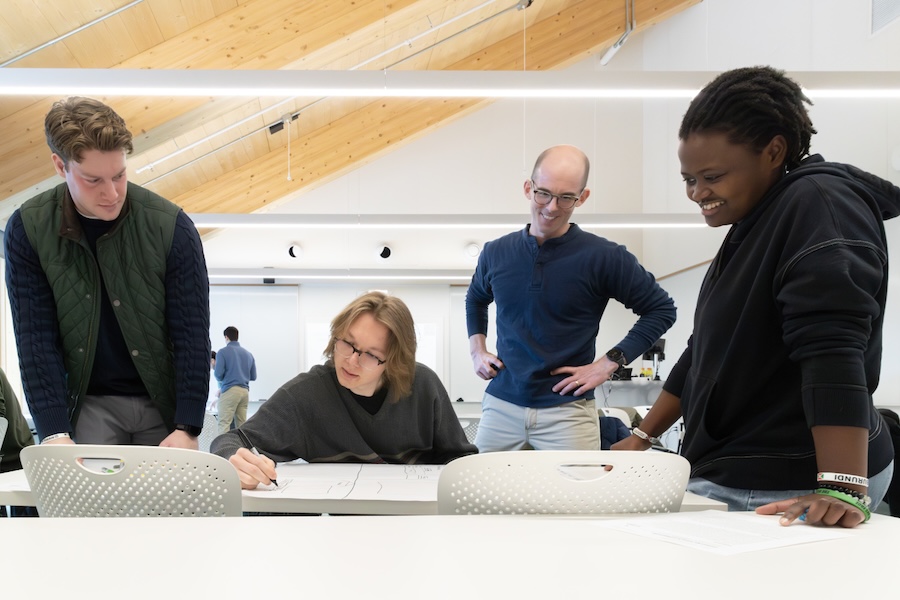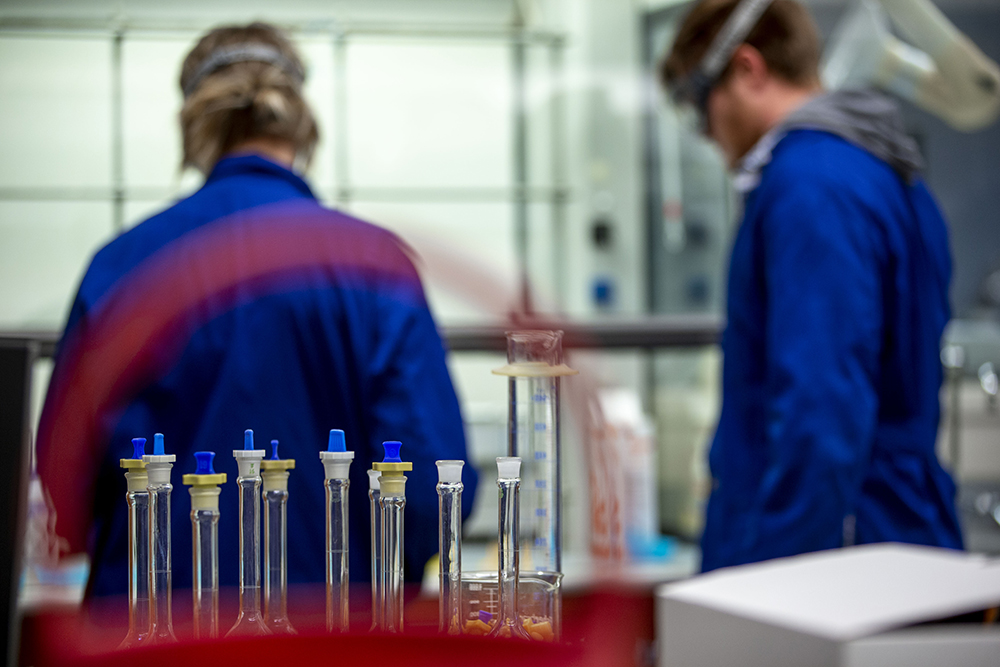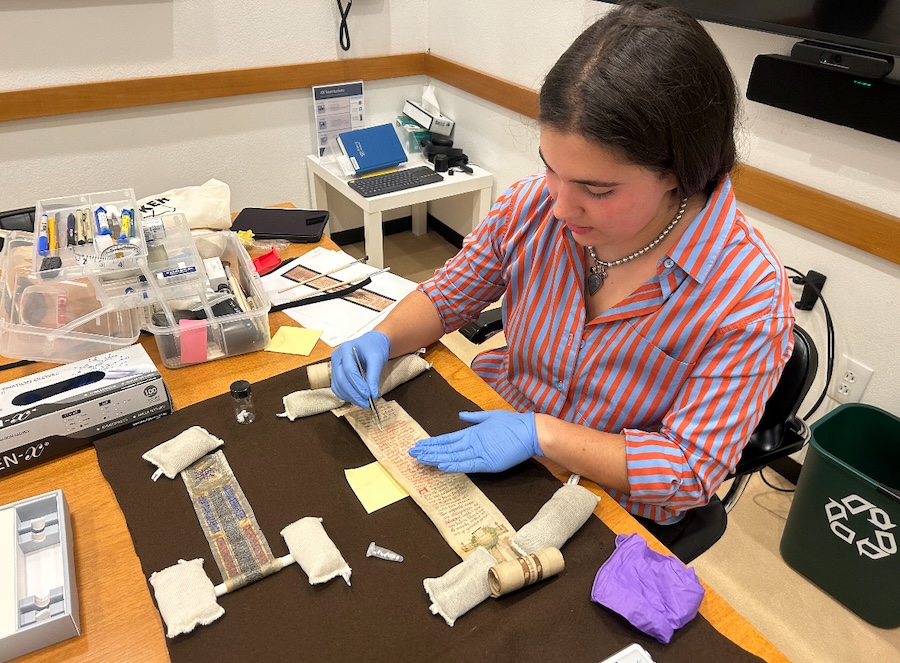Ruby Ahaiwe ’21 is Awarded a Davis Projects for Peace Prize
By Rebecca Goldfine
Ruby Ahaiwe will use the grant to return to her home in Nigeria this summer to set up a community health program, continuing work she began remotely last summer, when she received funding from Bowdoin's Peter Buck Student Internship Fund via the office of Career Exploration and Development.
Her aim then, as it is now, was to address the disparities between urban and rural healthcare in Nigeria. Healthcare services are concentrated in cities, and as a consequence, rural people often have lower life expectancies and poorer health.
Last year, she organized a public health workshop and outreach efforts in collaboration with a local hospital in the village of Isiala-Ngwa North, where she grew up. The inland town, in southern Nigeria, has about 2,000 residents.
Because she had to remain in the United States due to COVID-19 last summer, Ahaiwe enlisted the help of liaisons, including friends and relatives, to do the work she had been hoping to do herself. They fanned out in Isiala-Ngwa North to put up posters and speak to people about the importance of visiting the local health clinic when they are sick rather than relying solely on traditional medicine.
After setting up these programs, the biochemistry major and Francophone studies minor realized two things: that hospital staff were too busy taking care of patients to accomplish much community work, and that local people could be effective public health educators. They could also help advocate for more local health-related resources from the government.
This sparked her idea for her new project—to train “community health advocates” whose primary role will be to speak with local people about medical issues, like reproductive and sexual health, and how to prevent and treat malaria, tuberculosis, and COVID-19.
She aims to enlist around thirty men and women, between the ages of eighteen and fifty-five, to participate in a five-week training for fifteen hours a week starting in June. Ahaiwe will teach the cohort of volunteers basic tenets of public health so they can chat with their neighbors, churchgoers, students, or market vendors about how to take good care of their mental and physical health.
“The idea is for them to take charge and take ownership of health care, to go house to house and serve as a bridge between hospitals and homes,” she said. “Rural health care has been neglected in my home community, so hopefully I can spark change,” she added.
At the start of the training, Ahaiwe will focus a lesson or two on cultural and social topics—such as using sensitive language and projecting empathy—and how to stay tuned to religious differences. The region is home to a mix of Muslims, Christians, and people who practice the traditional religions of Nigeria, all of which can influence someone's health care choices.
For the duration of the project, Ahaiwe will live with her family in the nearby city of Umuahia. (Her mother, a retired math and economics high school teacher, will drive her to the workshop and also help with instruction, she said.)
While Ahaiwe will lead most of the lessons (she has been taking online classes this year in preparation and is currently taking Bowdoin professor Nancy Riley's course Social Epidemiology), she is being supported by staff at Chinonye Hospital. A patient coordinator, for instance, is accepting applications for her program, and the hospital, too, will help distribute the end-of-training stipend Ahaiwe will pay the volunteers out of her Davis funding.
The king of Isiala-Ngwa North has also granted Ahaiwe permission to use a village meeting hall for free for her thrice-weekly classes.
Ahaiwe's community-health advocate project is aligned both with her career goals and her aspirations to make a difference in Nigeria. Next fall, she will begin a master's of science program at Johns Hopkins University that concentrates on population, family, and reproductive health.
“Ultimately, I want to focus on providing birth control to women back at home, and give them better access to birth control and health care,” she said. “I am really hoping to be at the forefront of leading change for women’s health and reimagining women's health and maternal health back at home.”



